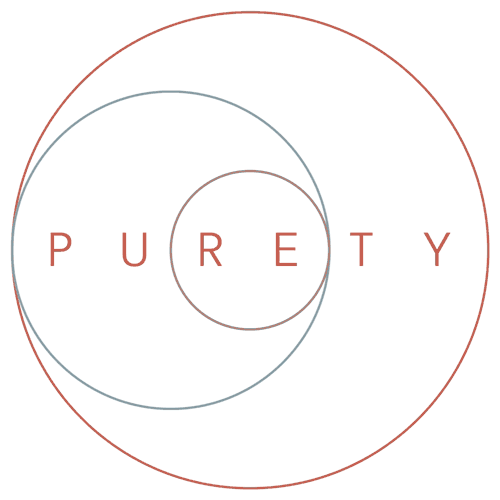Integrative Oncology Benefitting Cancer Patients Study Shows
Medical oncology continues to become more sophisticated and targeted towards the specific needs and management of each type of cancer. The goal of chemotherapy and radiation treatments is to be specific towards eradicating the cancerous cells while preserving our precious normal tissue, but none of these treatments are perfect. With standard oncology therapies, there is inherently a broader focus, and normal healthy cells frequently get involved and severely injured in the process. When chemotherapy is applied, it goes throughout the entire body so there is no control how it affects the healthy cells. Radiation is more focused on the cancerous tissue, but still damages the surroundings. Ideally, we want to keep a delicate balance to protect the normal cells while helping the chemotherapy and radiation to be even more effective.
Integrative oncology is the branch of medicine that aims at minimizing the side effects and after effects of cancer treatments while maintaining and potentially increasing the effectiveness of the treatments. Frequent modalities used are nutritional support, acupuncture, herbal medicine, physical medicine, ozone and oxygen therapies, and intravenous nutrient support including high dose vitamin c and curcumin. Cancer treatments are frequently hard on the entire system as well as the cancerous tissue, which makes it so important for the healthy tissues to be supported throughout and after treatment.
Common side effects of medical cancer treatments are nerve pain and inflammation, fatigue, scar tissue, immune dysfunction, joint pain, skin issues, digestive issues, and loss of hair. Surgery recovery can also be very difficult for those with cancer. Post-treatment health support is extremely important for maintaining function and reducing pain after beating down a cancer growth.
The primary concern of any patient is to protect quality of life. For a serious condition such as cancer, the integrative oncologist devotes 100% effort to keeping the cancer patient healthy, freeing the medical oncologist to focus exclusively on removing the cancer.
University research continues to give us a better understanding of how to protect the patient while maintaining the utmost effectiveness of the cancer treatment. Over 7 years ago, Dr. Paul Anderson helped start an NIH study at Bastyr Integrative Oncology Research Center (BIORC) in Seattle, a holistic cancer center. As of the end of the five year study almost 800 cancer patients had been enrolled in a prospective consecutive case series that involved all disease stages. About 30% of the patients had Stage IV cancer but 95% who were treated with IV therapy had Stage-4 cancers. The primary purpose of the study was to monitor increased longevity and better life quality resulting from the use of integrative oncology modalities such as nutritional support, acupuncture herbal medicine, physical medicine, and intravenous nutrient support.
Intravenous (IV) therapies in integrative oncology have many uses, including nutrient replacement, hydration, cell support, improvement of standard oncologic therapies, general quality of life care, decreasing post-treatment effects of radiation and chemotherapy, as well as direct anti-cancer effects.
Vitamin C intravenous (IV) therapy and curcumin IV are some of the most promising areas of integrative oncology. Because of this, low dose and high dose vitamin C were one of the first therapies BIORC wanted to employ because of its popularity and its needing of more data. Also, a huge area of misunderstanding was the assumption that IV Vitamin C was a waste of time or money, or it could possibly even interfere the conventional cancer therapies, which we absolutely do not want.
The first thing they did was set up safe protocols, gave educational materials and research to the patients and oncologists, and then Dr. Anderson put together a study of all the research papers that show whether vitamin C as a nutrient has an interaction with chemotherapy, radiation or surgery. It is a natural worry that one therapy may interact with another, but the most important thing was that patients would frequently ask about the potential interactions. Dr Anderson had looked deeply into the published papers of chemotherapy and radiation because of the patient’s needs with their treatment. Most of the data showed a neutral or positive effect with ascorbic acid (Vitamin C) with chemotherapy as well as radiation procedures. People do not take new ideas lightly, but by and large it really helped the discussion between medical oncologists and integrative oncologists.
Based on many years of using vitamin C with cancer, whether at high or low dose, normally it is not a classic ‘killing of cancer’ in most cases. The point of the treatment is to chemically change the environment immunologically around the tumor cells so the immune system and natural processes to shut off the cancer cell can be stimulated. With Vitamin C, it works different in a tumor type cell rather than a normal cell – this has been published by a separate NIH funded study for over 10 years. The job of integrative oncology is not curing cancer, but to enhance the other medical therapies if the person is getting them, enhance the immune system to help to fight the cancer, as well as to keep all the normal cells healthy.
The BIORC study has shown some encouraging initial statistics towards the benefits of integrative oncology. Since 2009, the BIORC had treated 8 patients with stage IV colon cancer. Three years after the initiation of their care, 80% were still alive; only 15% of Seattle Cancer Care patients in this group were alive at 3 years. Of the 12 consecutive patients with stage IV lung cancer treated at BIORC, 64% were still alive at 3 years. This compares favorably with the 15% reported by Seattle Cancer Care and the 4% reported by SEER (Surveillance, Epidemiology, and End Results Program). They also had 11 consecutive stage III ovarian cancer patients – at 3 years, 83% were still alive. This is compared to the SEER national data report of 49%. For the group with stage IV breast cancer, 18 patients received intravenous therapy while 28 did not. At 3 years, 100% of the patients who received intravenous treatments were alive, compared to 70% who did not. While the rates from the first three years are very exciting, the 5 year survival rates will help to give even more information.
Additionally the study looked at a comparison of 41 Stage-4 breast cancer patients who all were using naturopathic integrative oncology. In this group 1/3 added IV therapy and 2/3 used only non-IV integrative oncology modalities. After three years the survival in the group using all therapies (including IV therapy) was enhanced by approximately 10% over those using only non-IV integrative modalities.
Dr Leanna Standish, PhD, ND, Lac, a principle investigator of the BIORC, and her team has received more funding from The National Center for Complementary and Alternative Medicine to conduct a matched comparison study of breast cancer. They started in 2010 and had enrolled 571 patients since late 2013. The results will provide a really good chance of seeing the outcomes of integrative oncology.
A new study CUSIOS (the Canada and US Integrative Oncology Study) has been funded for six years to address the effects on life extension and quality of life in four types of stage-4 cancer patients followed for three years. All the centers in the study (three in the US and four in Canada) were chosen because they offer the most advanced integrative oncology care available in North America. Dr. Anderson is the medical director of “site-1” for the US and has hired Dr. Standish (who is one of the principle investigators) to work in his research site.
The goals and modes of treatment vary with the severity of the condition. For someone with a very low penetrating tumor that can be taken completely out by surgery simply wants to heal, and not have the cancer come back by focusing on preventive care. On the far other end of spectrum, a cancer that is very advanced and not responding to treatment needs to focus on living their life as comfortably as possible while receiving what is called palliative care. Both of these situations are very different, and there is everything in between. No two people will get the same treatment because of this. Their bodily needs are different.
Patients many times say that they want to live the rest of their life with minimal pain, having the most function possible, and highest quality of life possible. Integrative oncology can combine the best of palliative medicine with therapies that help to restore or protect vital functions. In many cases, pain control, digestive capacity, mental clarity, tissue protection, and mental/physical functioning can be improved during this process.
We at Purety Family Medical Clinic in Santa Barbara are pleased to announce that we have begun implementing integrative oncology support using BIORC methods for cancer patients in need. We maintain relationships with the doctors involved in the BIORC study and are continuously advancing our integrative oncology and cancer support modalities here in Santa Barbara. We are currently accepting new patients as a holistic cancer center of Santa Barbara.

